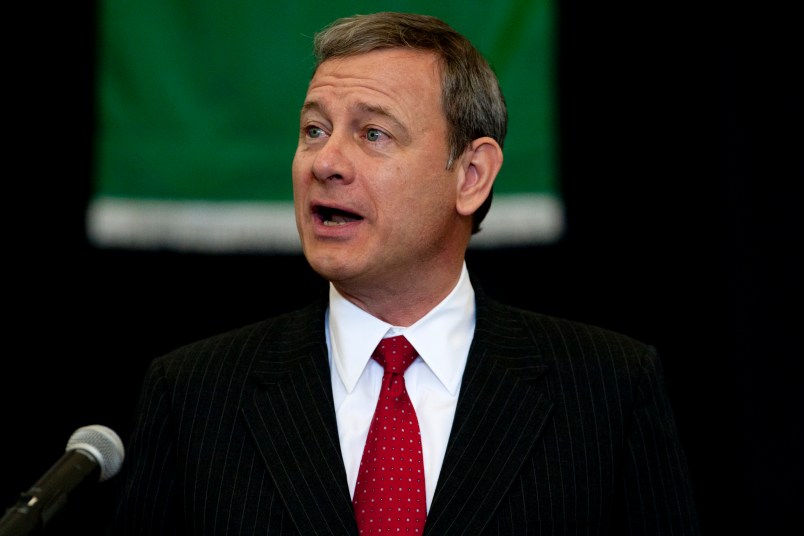Not only did the Supreme Court deliver a major blow Wednesday to campaign finance restrictions, it may have laid the groundwork to dismantle what’s left of campaign contribution limits, legal experts say.
The controlling opinion in McCutcheon v. FEC, written by Chief Justice John Roberts, eliminated “aggregate” limits on a person’s contribution to candidates and political committees in an election cycle. It left untouched restrictions on how much money someone can give to a single candidate or committee — but Roberts’ reasoning signals that those may be in trouble, too.
“By requiring that any campaign finance laws be deemed necessary to prevent quid pro quo corruption, akin to bribery, many more campaign laws could fall in the near future, including those base $2,600 limits,” wrote Rick Hasen, an election law expert at UC Irvine. “While Roberts goes out of his way to say that those base limits were not challenged today, he does not do anything to affirm that those limits are safe.”
Roberts — whose opinion was joined by Justices Antonin Scalia, Anthony Kennedy and Samuel Alito — argued that “[s]pending large sums of money in connection with elections, but not in connection with an effort to control the exercise of an officeholder’s official duties, does not give rise to such quid pro quo corruption.”
David Gans, the civil rights director for the liberal Constitutional Accountability Center, said Roberts’ ruling adopts the “stingy definition of corruption” used in the 2010 Citizens United ruling, narrowing the constitutional basis for campaign finance law and paving the way for “new challenges to contribution limits.”
“While today’s opinion is confined to the aggregate limits, its reasoning could be used to attack a whole host of state and federal contribution laws,” Gans said. “McCutcheon is yet another example of Chief Justice Roberts playing the long game.”
The long game, which many court watchers have written about, reflects the 59-year-old chief justice’s preference for gradually — rather than swiftly — chipping away at progressive laws, which makes the decisions more enduring and reduces public ire directed at the Supreme Court. Since Alito joined the court in 2006, the five-member majority of Republican-appointed justices has shown plenty of skepticism — and little sympathy — toward campaign finance restrictions.
“The Court narrowly cabined Congresses ability to regulate [corruption],” said Marc Elias, a campaign finance lawyer who has worked with top Democrats. “The narrowness of this definition means that future challenges to other parts of the law are inevitable. How the court deals with those only time will tell.”
Roberts’ intentions in McCutcheon weren’t lost on Justice Clarence Thomas, who penned a concurring opinion calling for wiping out campaign contribution limits that were upheld in the landmark 1976 decision Buckley v. Valeo, the logic of which he said “cannot be squared with a key premise of today’s decision.”
“I regret only that the plurality does not acknowledge that today’s decision, although purporting not to overrule Buckley, continues to chip away at its footings,” wrote Thomas.






